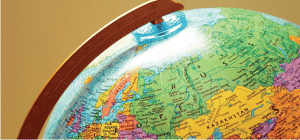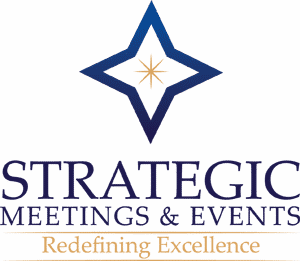What To Know When Working With International Guests
By Christy Lamagna, CMP, CMM, CTSM, and James S. Rota
Have you heard people say they’re a right-brain or left-brain thinker? Right-brainers tend to be creative and instinctual, left-brainers more analytical and logical. That’s how “Beauty and the Brain” was born. James Rota’s creativity meshes with Christy Lamagna’s strategic thinking to bring a well-rounded approach to events. These columns are designed to highlight both sides of the planning process and what to know when working with international guests.

From the Brain
Event strategists don’t plan events, they create experiences. To do that, one must understand the audience, audience members’ customs, habits, and preferences. This is a task unto itself when working with groups from within the United States. Add international attendees to the mix and there’s another layer of complexity. The bottom line: It’s our job to make all guests feel welcome and important. Want more ideas? Email us at WeAreListening@strategic.events.
From the Beauty
As technology continues to make the world grow smaller, it’s more important than ever to understand the cultural differences, trends, and habits of international guests. Consider this …
In Hong Kong, the color red and the number 13 are considered lucky. Make sure the front desk knows this when assigning sleeping rooms and floors.
With the Japanese, always address someone older or with a higher position by their official work title instead of their name.
Flower arrangements delivered to Russian guests should contain an odd number of blooms (even numbers are only for funerals). The Chinese should get an even number of flowers (odd numbers are considered a bad omen).
New Zealanders never discuss business at dinner even if they’re at a work-related event. Business is discussed at lunch — either before the meal is served and/or after it’s cleared.
Italians consider it offensive to exchange business cards in social situations. In Italy, they have a set of cards for business and another for social circumstances.
Germans see business as very serious, so refrain from telling jokes. Germans do appreciate a good laugh in other places but not the workplace.
Think twice about that firm handshake. In Indonesia, businessmen and women traditionally greet each other with a limp handshake that lasts 10 to 15 seconds. The rules aren’t easily identifiable and they vary considerably throughout the Muslim world. It’s smart to think twice before shaking hands with, touching, or in some cases, even looking at someone of the opposite gender.
Here are two interesting facts about gestures; you might think the gesture of thumbs up is fairly positive, right? In Iran and several other Middle Eastern countries, a “thumbs up” is considered the foulest of insults. To Brazilians, the American sign for OK is comparable to giving them the finger.
Regardless of where your attendees are from, follow these guidelines. Always take note of the tone, quality, and volume of your spoken word, be aware of your posture, learn to listen, and when in doubt, remember that humility is the best policy. And of course, smiles translate to every culture, so do that at every opportunity.
Tags: What To Know When Working With International Guests, International Guests, Planning, Event Planning, Event Planners, Strategic Planners, Strategic Events, Plan Your Meetings





